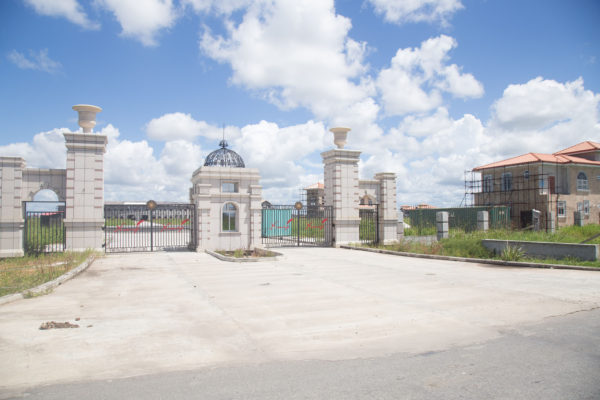Land originally for a posh housing estate on the East Bank of Demerara connected to the controversial Chinese logging company Baishanlin is up for sale.
In whole-page advertisements in all of the newspapers today, Nigel Hinds, the Receiver-Manager of Sunset Lakes Inc, invited tenders from local and foreign parties interested in purchasing 100 acres of land en bloc or less in the Providence area. The land is located within one mile and south west of the Guyana National Stadium.
Tenders must be submitted no later than September 21, 2017 to Clifton Nigel Hinds, Receiver-Manager, Sunset Lakes Inc., 1 Croal Street, Stabroek, Georgetown. The advertisement said that the tenders shall be evaluated primarily on price.
In 2014, Baishanlin had promised some 400 luxury homes on its 100-acre gated community at Providence. However, with debts piling up and regulators clamping down on it, the project went bust. The planned housing scheme appears to have taken on significant local debt.
At what was dubbed the New Life Community project, houses were to start at $28 million and go all the way to $105 million.
Under the previous PPP/C administration, businessman Brian Tiwarie had signed an agreement via his Sunset Lakes Inc company with the Central Housing and Planning Authority (CHPA) to purchase and develop the 100 acres of land at a cost pegged at $475 million. He paid a quarter of the sum and had six months to pay off the balance.
In 2014, Tiwarie went into partnership with Baishanlin where the company would pay him US$8 million and develop the site. As part of the agreement, he would also get to keep some of the house lots in the gated community for his personal use.
However, Tiwarie took Baishanlin to court in 2016 for the balance of US$4 million on the agreed purchase price. It is unclear if this matter has been settled.
The CHPA has signalled that it is moving to repossess lands where the developers failed to live up to their commitments.





